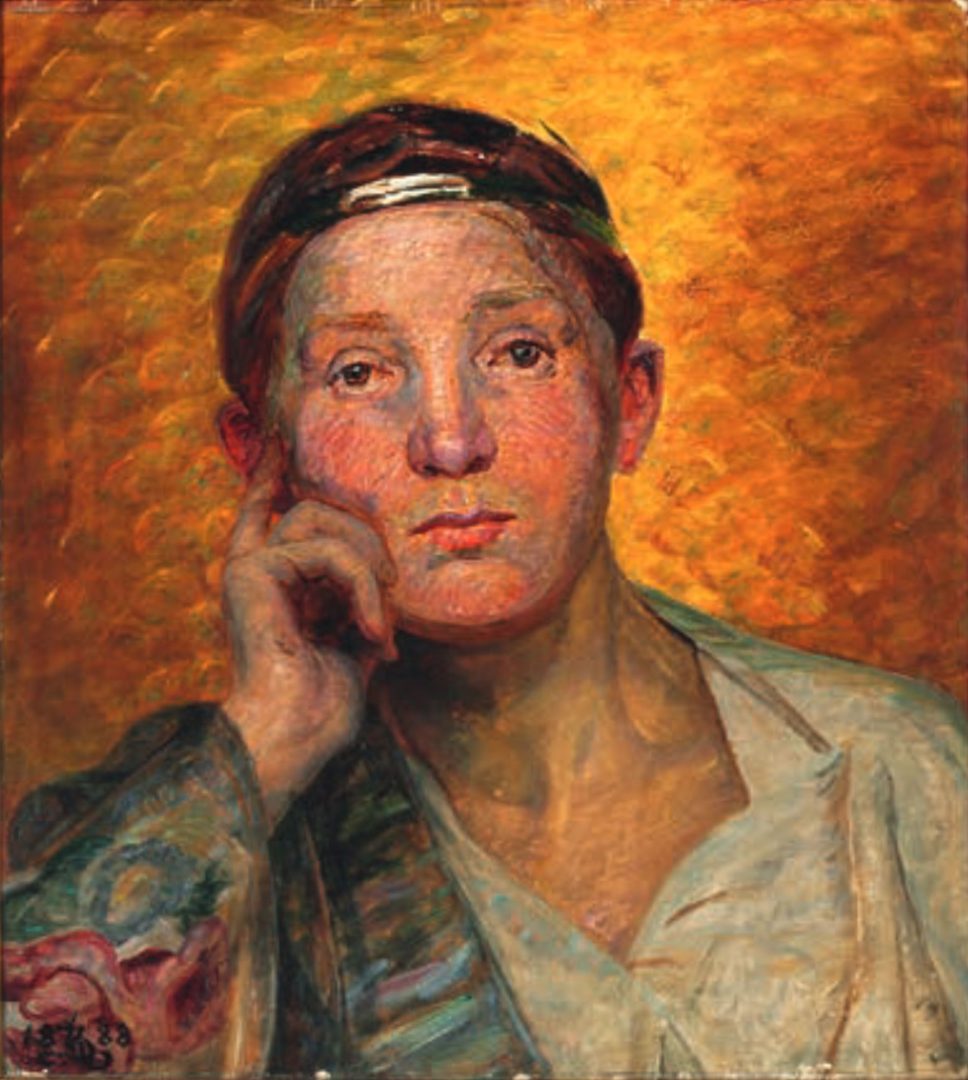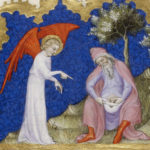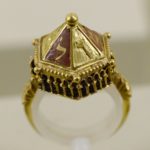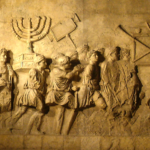Solomon – the son of King David and Bathsheba.
Though he was not the oldest son, he inherited the throne because David had promised Bathsheba that Solomon would be king. Before David died, he appointed Solomon, as his successor. Solomon was 12 years old at the time, (1 Kings 2:2-3).
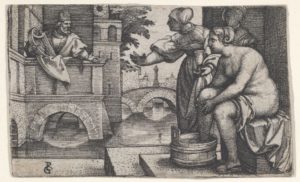 David’s choice of successor displeased his older son, Adonijah, who declared himself King (1Kings,1:1-10). In response to this, David arranged for Solomon to be anointed by the priest at the Gihon spring, thus making Solomon King (1 Kings 1:5-40).
David’s choice of successor displeased his older son, Adonijah, who declared himself King (1Kings,1:1-10). In response to this, David arranged for Solomon to be anointed by the priest at the Gihon spring, thus making Solomon King (1 Kings 1:5-40).
In a coup, organized by Nathan and Bathsheba (1 Kings1:11-31), Adonijah was captured and executed (1 Kings1: 2:13-25).
Soon after being anointed king, God appeared to Solomon in a dream and asked him what he would like for himself. Solomon asked for wisdom to enable him to rule justly. This unselfish request pleased God so God granted Solomon riches and glory in addition to wisdom (1 Kings 3:7-13).
Solomon is well known for his wisdom and knowledge in a range of areas.
His knowledge spanned the secular and the spiritual. He was the author of three biblical books: Song of Songs, the Book of Ecclesiastes, and the Book of Proverbs.
The story of the dispute between two women who both claimed to be the rightful mother of a particular child is a well-known illustration of Solomon’s wisdom and justice (1 Kings 3:16-28). When Solomon ordered that the child be cut in half so that the women may each have half, the true mother withdrew her claim and pleaded that the child might live. The woman who made the false claim was prepared to go along with Solomon’s suggestion. Solomon stopped the proceedings and handed the child to its mother. Solomon’s reputation for his wisdom quickly spread throughout the kingdom.
However, his reputation reached beyond the borders of his kingdom and rulers would travel great distances to visit him. The account of the visit by the Queen of Sheba is also well known. The queen had traveled more than 1000 miles to meet Solomon. She was greatly impressed by his wisdom and his ability to solve riddles. She complimented him by stating that the Lord had set Solomon on his throne because the Lord loves Israel (2Chr.9:1-12 ). She made a generous gift of 120 talents of gold and silver. Possibly to highlight Solomon’s wealth or generosity, the account tells of how he outdoes her generosity.
Because of David’s military skills, Solomon inherited a large empire (2 Chr 9:26). He reigned during a period of security and enjoyed peaceful relationships with neighboring countries. This situation allowed the development of trade and wealth for the country (2 Chr.1:1-17).
The wealth and stability provided conditions for building activities throughout the empire, including Jerusalem and Tyre (Lebanon) (2 Chr.8:6-10). These also included Solomon’s crowning achievement: the building of the temple on Mount Moriah (2 Chr.3:1-2) and a palace for himself (2 Chr.1:18-2:1).
The projects required enormous manpower.
The book of Chronicles describes how Solomon conscripted 70,000 laborers, 80,000 stone cutters from the hill country, and 3,600 men to supervise the projects (2 Chr 2:1).
Building materials for the temple had to be imported also. Hiram, the king of Tyre, sent cedar wood for the project at Solomon’s request (1Kings.5:23-26). Hiram also supplied skilled craftsmen to work on the temple (2 Chr.12-13,1 Kings 5:31-32).
The temple took seven years to complete (1 Kings5:31-32). The inner parts of the building were ornately carved and overlaid with gold. On completion of the building, Ark brought to the temple (2 Chr.5:2-11) and, in a public ceremony of prayer and sacrifice, Solomon dedicated the temple to God.
In those times alliances were formed between royal houses and these alliances were commonly sealed through marriages. Solomon was certainly no stranger to this custom. He had no fewer than 7000 wives and 300 concubines (1Kings,11:1-13). One of his main wives was Pharaoh’s daughter (1Kings 3:1), whom he also built a palace for (1King.1: 8).
Many of the wives came from cultures with polytheistic beliefs and idolatrous practices. This is usually cited as the root cause of Solomon’s downfall and division of the kingdom of Israel. In the latter half of his reign, he built shrines for his wives to worship and make sacrifices and he began to practice idolatry (1 Kings 11:4-5).
Angered by Solomon’s actions, God foretold how the kingdom would be torn apart and that he would give just one tribe to Solomon’s son (1Kings 11:9-13). After ruling for 40 years, Solomon died in Jerusalem. His successor was his son, Rehoboham. During the rule of Rehoboham, Solomon’s empire was lost and the kingdom was split into Judah and Israel.

